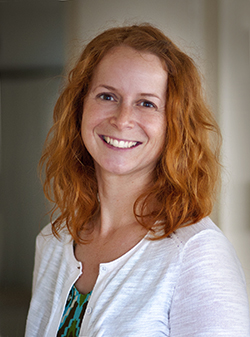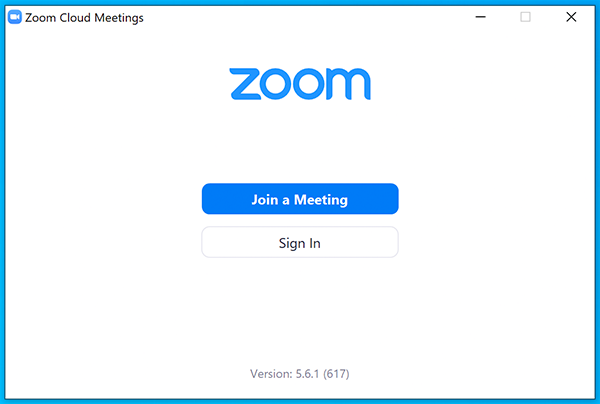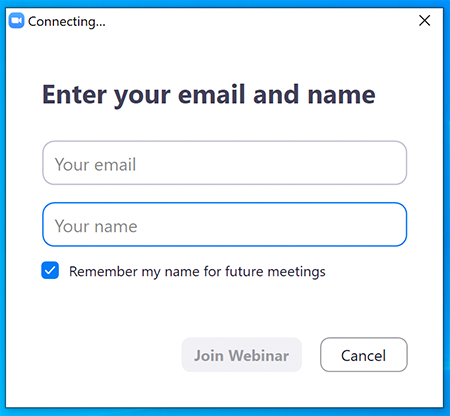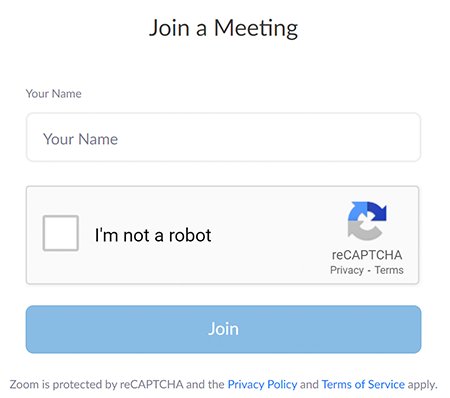Federal Facilities Academy: Land Use and Onsite/Offsite Determinations
Live Webinar: Wednesday, July 22, 2026, 1:00PM-3:00PM EDT (17:00-19:00 GMT)
Sponsored by: U.S. EPA Office of Superfund and Emergency Management (OSEM)
Determining Land Use and Onsite/Offsite Determinations is a two-hour webinar course that provides an overview of land use determinations under the Comprehensive Environmental Response, Compensation, and Liability Act (CERCLA). Reasonably anticipated future land use at CERCLA sites is important in determining the appropriate extent of remediation. Onsite and offsite determinations impact the need for permits and offsite transfer of CERCLA wastes. By taking this course, participants will achieve the following objectives:
- Identify factors that influence land use determinations under CERCLA;
- Explore Environmental Protection Agency (EPA) guidance and policy related to land use determinations;
- Learn about onsite permit requirements and exemptions at Federal Facilities; and,
- Understand off-site determinations and the Off-Site Rule and how these differ from on-site determinations.
 Jyl Lapachin, U.S. EPA Office of Superfund and Emergency Management (OSEM)
Jyl Lapachin, U.S. EPA Office of Superfund and Emergency Management (OSEM)
Lapachin is a physical scientist in the Federal Facilities Restoration and Reuse Office where she works as the Federal Facilities Superfund Redevelopment Coordinator. She also provides national guidance on Land Use Controls, property transfers, and NPL deletions, and spearheads the National Federal Facility Excellence in Site Reuse Award. She holds a Bachelor's degree in Biological Sciences from Michigan Technological University and a Master's degree in Environmental Science, Water Resources from Miami University.
Geoff Schamm, U.S. EPA, Region 10 (schamm.geoff@epa.gov)
Moderators:
Ray Ledbetter, U.S. EPA Office of Superfund and Emergency Management (OSEM) (Ledbetter.Ray@epa.gov)
John (JR) Reynolds, U.S. EPA Office of Superfund and Emergency Management (OSEM) (Reynolds.John.D@epa.gov)
- These materials will be available by Wednesday, July 22, 2026
Webinar Slides and References:
- These materials will be available by Wednesday, July 22, 2026
Additional Resources:
 2024 Federal Facilities Academy Flyer
2024 Federal Facilities Academy Flyer Land Use in the CERCLA Remedy Selection Process (1995)
Land Use in the CERCLA Remedy Selection Process (1995) Reuse Assessments: A Tool to Implement the Superfund Land Use Directive (2001)
Reuse Assessments: A Tool to Implement the Superfund Land Use Directive (2001) Considering Reasonably Anticipated Future Land Use and Reducing Barriers to Reuse at EPA-lead Superfund Remedial Sites (2010)
Considering Reasonably Anticipated Future Land Use and Reducing Barriers to Reuse at EPA-lead Superfund Remedial Sites (2010)- National Federal Facility Excellence in Site Reuse Awards
- Redevelopment, including economic, inventory and site snapshots at Federal Facilities
 DOE fact sheet on Pantex
DOE fact sheet on Pantex- Video on Pantex
 EPA's Success Story: Fernald Preserve (June 2010)
EPA's Success Story: Fernald Preserve (June 2010) Institutional Controls: A Guide to Planning, Implementing, Maintaining, and Enforcing Institutional Controls at Contaminated Sites
Institutional Controls: A Guide to Planning, Implementing, Maintaining, and Enforcing Institutional Controls at Contaminated Sites- BRAC and EPA's Federal Facility Cleanup Program: Three Decades of Excellence, Innovation and Reuse
- Off-Site Rule Fact Sheet
- Hanford Site Information
 USDOE ERDF fact sheet
USDOE ERDF fact sheet Background on the Corrective Action Management Unit Rule and Amendments (CAMU)
Background on the Corrective Action Management Unit Rule and Amendments (CAMU)
Thank you for participating in our webinar. We would like to receive any feedback you might have that would make this service more valuable.
Help & FAQs
- Frequently Asked Questions
- Content Questions?
Call John Reynolds at 202-817-0409 or Reynolds.John.D@epa.gov - Technical Problems?
Leave us a comment - Cancel Your Registration
- My Participation Records
- CEU Credits and PDHs
Zoom Resources
Before Webinar Day
This seminar will be delivered through Zoom. Participants are encouraged to update to the latest version of the Zoom application for the best experience.
If you are unable to install the Zoom application, most functions will be available if you join just using a modern web browser such as Chrome, Edge or Firefox. We strongly encourage you to run the Zoom Meeting Test prior to attending this webinar. Technical support on the day of the webinar will be very limited and subject to significant delays.
Backup Conference Call
If you cannot participate using online audio, you may join the optional call in line. After checking in for the live event using the instructions listed below, you will see several options to participate. Please click the links in option 4 to follow along by phone and obtain the call in number. If you cannot access the phone number, you may request the call in line from the event moderator in the Q&A or send an email to Jean Balent at balent.jean@epa.gov
Click on "Join Webinar" at the top of this screen, enter your exact first and last name as you registered and enter the number of people attending at your location (including yourself). You should then be taken to the Zoom meeting room. Join with Zoom Application: For those joining with the Zoom application, you may be prompted to sign with a zoom account or join as a guest without signing in.
If joining as a guest, you will be prompted to enter your name and email address. Remember your name, image, video or voice may be visible to others in the live event. When done, click "Join" When it is time for the live event to start, the meeting host will admit you to the live Zoom meeting. Join via web browser (without the Zoom Application): For those joining with a web browser, you may close any pop ups prompting you to download the Zoom app. The next window will allow you to enter your name (first name and last name) and check the box that you are not a robot. Click the blue join button. You may also be asked to provide your email address before joining the room. Remember your name, image, video or voice may be visible to others in the live event. When done, click "Join" When it is time for the live event to start, the meeting host will admit you to the live Zoom meeting. You may need to periodically refresh the browser window to confirm if the host has admitted you. The presenters will control what slide you are viewing. You may submit questions online for the instructors to answer during the webinar by typing in the "Q&A" area. It is not necessary to wait until the question and answer periods to submit questions. At the end of the webinar you will be guided to our feedback form and links to additional resources, including the complete presentation. These links will remain active after the webinar. Provided for your convenience. Importing or accepting the invitation within this iCalendar file is not required, and declining the invitation does not cancel your registration. For additional information on iCalendar, please see our
iCalendar Help It is EPA's policy to make reasonable accommodation to persons with disabilities wishing to participate in the agency's programs and activities, pursuant to the Rehabilitation Act of 1973, 29 U.S.C. 791. Any request for accommodation should be made to John Reynolds at 202-817-0409 or Reynolds.John.D@epa.gov, preferably one week or more in advance of the webinar, so that EPA will have sufficient time to process the request. EPA would welcome specific recommendations from requestors specifying the nature or type of accommodation needed. EPA welcomes specific recommendations from requestors specifying the nature or type of accommodation needed. Please note that CLU-IN provides both alternate phone call-in options and closed captioning for all webinars, and requests for these specific accommodations are not necessary.
Webinar Day, Checking In



Moving Through Slides
Feedback & Links to Additional Resources
iCalendar File
Rehabilitation Act Notice for Reasonable Accommodation
Rehabilitation Act Notice for Reasonable Accommodation
It is EPA's policy to make reasonable accommodation to persons with disabilities wishing to participate in the agency's programs and activities, pursuant to the Rehabilitation Act of 1973, 29 U.S.C. 791. Any request for accommodation should be made to John Reynolds at 202-817-0409 or Reynolds.John.D@epa.gov, preferably one week or more in advance of the webinar, so that EPA will have sufficient time to process the request. EPA would welcome specific recommendations from requestors specifying the nature or type of accommodation needed. EPA welcomes specific recommendations from requestors specifying the nature or type of accommodation needed. Please note that CLU-IN provides both alternate phone call-in options and closed captioning for all webinars, and requests for these specific accommodations are not necessary.
Webinar Recording
By participating in this CLU-IN webinar, you automatically agree to authorize recording of audio and visual content presented during this live event and consent to subsequent use of this recording in the public domain by the U.S. Environmental Protection Agency. This recording may include questions, comments and poll responses provided by you during the live event in addition to your name, voice, image or likeness. This recording will be made available after the conclusion of the live event as part of the CLU-IN webinar archives, and will remain available indefinitely. If you do not wish to consent to the recording, please do not join the live event, and contact Jean Balent at 202-566-0832 or balent.jean@epa.gov to discuss your concerns.
Content Disclaimer
This webinar is intended solely to provide information to the public. The views and opinions expressed as part of this webinar do not necessarily state or reflect those of the U.S. Environmental Protection Agency. It is not intended, nor can it be relied upon, to create any rights enforceable by any party in litigation with the United States, or to endorse the use of products or services provided by specific vendors. With respect to this webinar, neither the United States Government nor any of their employees, makes any warranty, express or implied, including the warranties of merchantability and fitness for a particular purpose, or assumes any legal liability or responsibility for the accuracy, completeness, or usefulness of any information, apparatus, product, or process disclosed, or represents that its use would not infringe privately owned rights.

